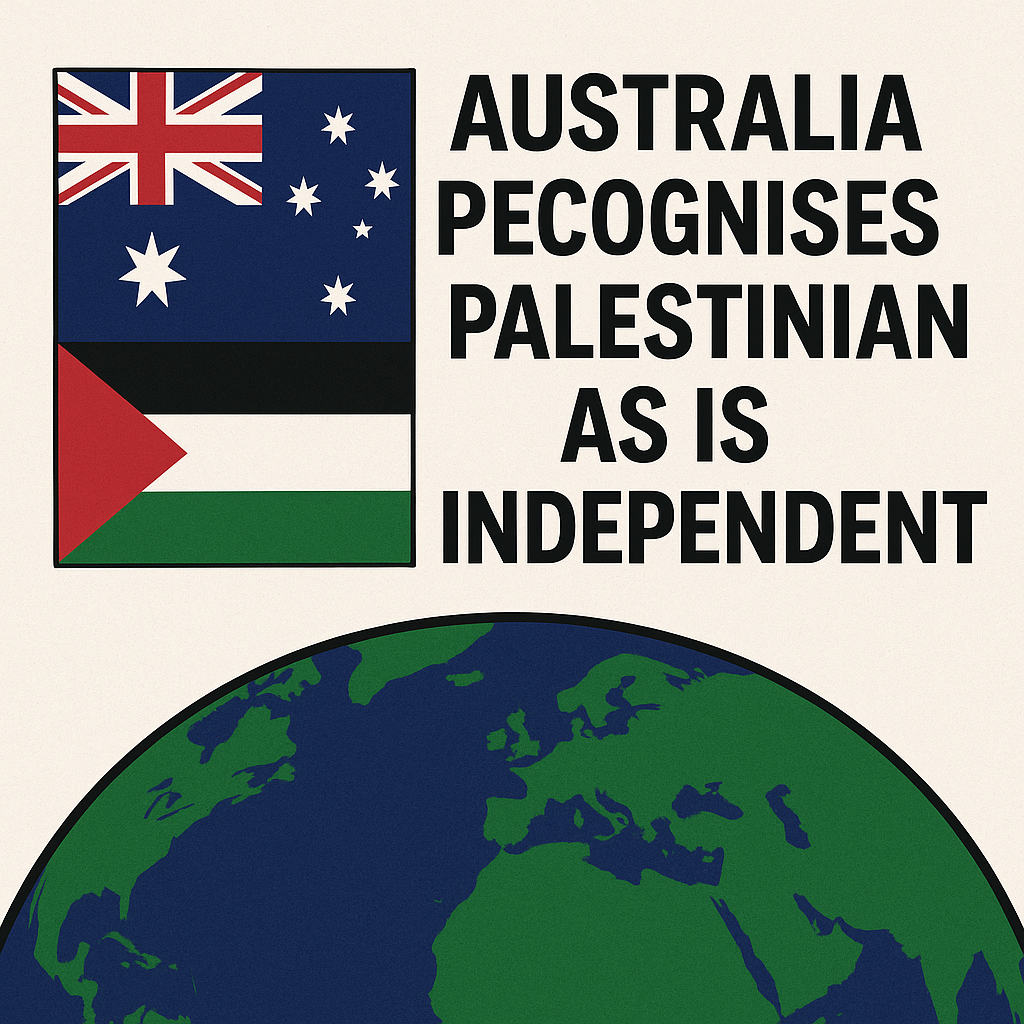Australia’s Historic Move
In a landmark diplomatic decision, Australia has officially recognised the State of Palestine as an independent nation. The announcement marks a significant shift in Australia’s foreign policy, signalling its commitment to a two-state solution as the pathway to lasting peace in the Middle East. Australian officials stated that this recognition reflects growing international momentum towards Palestinian statehood and the need for a balanced approach to resolving the Israel–Palestine conflict.
Why This Recognition Matters
This move by Australia adds weight to the global conversation about Palestine’s political legitimacy. Recognition by developed nations often influences international policy debates, investment opportunities, and peace negotiations. Australia’s decision also puts pressure on other countries that have yet to make a clear stance.
Countries That Recognise Palestine
To date, over 140 countries have officially recognised Palestine as an independent state. These include:
Asia: China, India, Pakistan, Indonesia, Malaysia, Turkey, and most Arab nations.
Africa: South Africa, Egypt, Nigeria, Algeria, and dozens more across the continent.
Europe: Sweden, Iceland, and the Vatican are notable recognisers in Western Europe, while Eastern European nations such as Poland and Hungary have also extended recognition.
South America: Brazil, Argentina, Chile, and many others have voiced official support.
This widespread recognition demonstrates that Palestine already enjoys strong backing across multiple continents, even if it lacks universal acceptance at the United Nations level.
The Road Ahead for Palestine
While recognition is an important milestone, it does not automatically translate into full UN membership or guaranteed sovereignty on the ground. Political negotiations, border agreements, and security arrangements remain unresolved. However, as more countries align themselves with the cause, the chances of renewed peace talks increase.
Reactions from Israel and the International Community
Israel has strongly opposed Australia’s decision, arguing that recognition should only come through direct negotiations between the two parties. Meanwhile, Palestinian officials have welcomed the announcement as a victory for diplomacy and international law. The United Nations and several European leaders have praised the move, calling it a step towards justice and stability in the region.
Global Momentum
Australia’s recognition adds to the growing list of Western-aligned nations reconsidering their positions on Palestine. With mounting international pressure and ongoing humanitarian concerns in Gaza and the West Bank, the debate over Palestinian statehood is set to intensify in the coming months.


.jpg)

0 Comments
No comments yet. Be the first to share your thoughts!
Leave a Reply